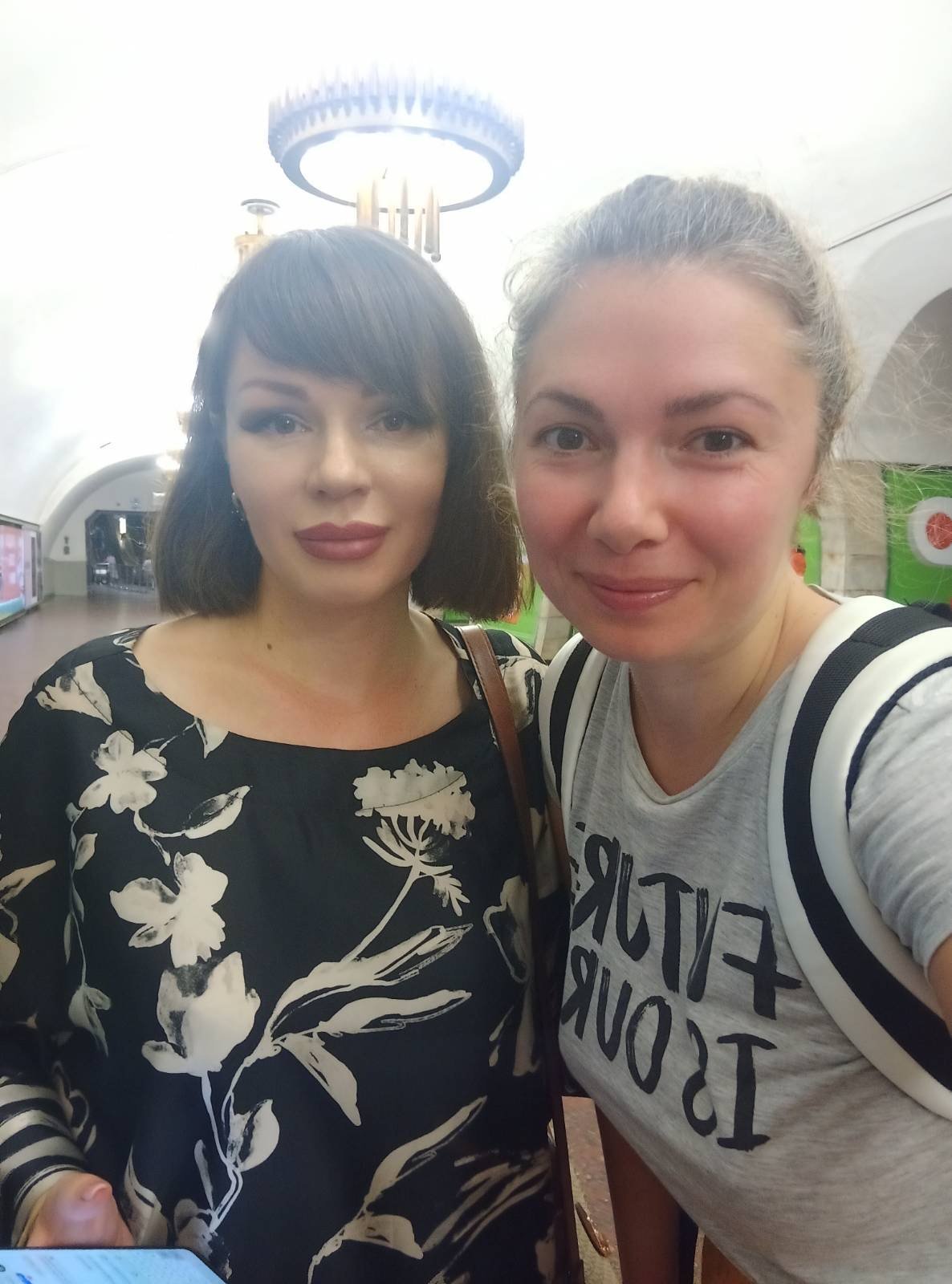Professor of Psychology Discusses the Difficulties in Practicing During Wartime
Professor Nataliia and ACHF Administrative Assistant Mariia Ivanova meeting up in Metro.
Nataliia is a Professor of Psychology at Schevchenko University. She manages specialized trauma conditions. She has a clinical practice, but most of her time is spent teaching. Nataliia has been a professor for over 25 years. Nataliia treats families of soldiers. She has incorporated teaching the mental health intervention known as prolonged exposure within her university courses.
She said she is using the training she received from the Arlene Campbell Humanitarian Foundation through grant funding from the United Methodist Committee on Relief. Nataliia reported that her students go to the frontline forces to work with current Ukrainian Defenders for one month each year as part of their practical training. In addition, many of her students have their parents living in Russian occupied Ukrainian territories. Students are using their knowledge she passed onto them from the May Mental Health Seminar with their parents. Nataliia said she was grateful for the way our training was well structured. She specifically learned self-care techniques as a therapist, and reported that she was able to detach more from the patient’s issues through skills obtained in the May training.
One request that Nataliia had for us was for more resources and future training to be provided on three essential topics: suicide prevention, grief and addictions. The knowledge available about suicide in Ukraine is not well structured. Suicide is a very difficult and sensitve topic in Ukraine. She reported that patients make progress and then something triggers them, and they slip back into darker thoughts. She is not sure what can help these patients. Additionally, Nataliia stated that more information about grieving the loss of a family member is needed. So many people are dying on the frontline. When new members come to the military, they do not want to get to know these new individuals because they are afraid. They are certain the newcomer will be killed in combat and then the more seasoned soldiers will have to deal with the newcomer’s families. Furthermore, soldiers are trying to cope with their traumas through various addictions including alcohol, drugs and gambling addictions. In Ukraine, online casinos present problems.
Nataliia said that many of her patient’s come to see her because their relative in the Ukrainian military has been deployed for a long time. Other patients come to see her because their soldier has disappeared. Other patients come to her simply because they desperately missed their loved one who is serving in active duty. When Nataliia has too many patients for her to treat, she refers them to her colleagues.
Your support to the Arlene Campbell Humanitarian Foundation helps us “train the trainer,” in mental health interventions. Nataliia trains many students who then practice on the frontlines. In building up the mental health infrastructure in Ukraine, one of the best internventions nonprofits can provide is to train those who will then pass on their knowledge, helping expotentially more individuals. These interventions can literally save lives, and consistently help mitigate emotional suffering caused by the trauma of war.

